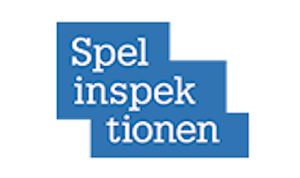The Swedish gambling regulator has published fresh details on unlicensed operator activity in the market, outlining the key markets where unregulated brands are registered and licensed.

Spelinspektionen said its investigations showed that around 13 per cent of internet traffic in 2024 to unlicensed gambling brands went to companies with a licence from another EU member state.
The majority of this traffic went to Malta-licensed sites but also sites operated in Cyprus and Estonia.
The regulator said that the general player perception via “discussions on various gambling forums” is that companies licensed within the EU, and especially in Malta, are safer and offer better player protection.
But it added: “According to the Swedish Gambling Authority, consumer protection on these sites is generally significantly weaker than what applies within the Swedish licensed market.
“For example, the Authority has not observed anything comparable to Sweden’s duty of care among this category of sites. The presence and scale of bonuses are also greater than what is allowed in Sweden. Cashbacks and VIP programs are also commonly offered.”
The regulator added that it has found it difficult to target such illegal sites because they “almost always” market themselves in English.
A well-cited element of the Swedish gambling regulation that the government has promised to look into states that the regulator can only take action against unlicensed brands that market to Swedish players through the use of the Swedish language and Swedish currency.
The EU-licensed illegal brands “typically lack other clear indicators that they are targeting Swedish players,” the regulator said.
However, the Swedish Gambling Authority said this is not the case for illegal operators licensed in third countries, where it is “much more common” for these companies to “explicitly target the Swedish market through marketing or Swedish-language gambling sites.”
Spelinspektionen said illegal brands in markets such as Curaçao and Anjouan “pose a significant challenge in the fight against illegal gambling.”
In 2024, the regulator said around 45 per cent of all traffic to unlicensed gambling sites went to sites claiming that the company behind them was licensed in a third country.
Of this traffic, Curaçao accounted for 38 percent and Anjouan for five per cent.
“The Authority has also noted that some companies in this category process their payments through payment agents in Cyprus, i.e., within the EU,” it said.
“In a review conducted in December 2024, about half of the companies whose site traffic the Authority monitors were using a payment agent within the EU to handle transactions. In 99 per cent of cases, the payment agent was registered in Cyprus.
"By using a payment agent within the EU, such gambling companies gain access to the EU's payment systems, which can create a façade of operating within more regulated frameworks.
“However, the payments are often disguised as other types of transactions, such as e-commerce, to avoid detection by banks or regulatory authorities.”

